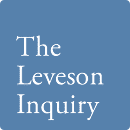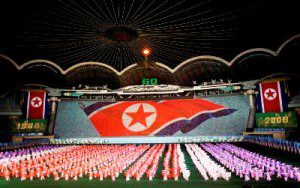Lord Justice Leveson’s big internet problem
 The inquiry into UK press standards does not seem to understand how to deal with the web, says
The inquiry into UK press standards does not seem to understand how to deal with the web, says
Marta Cooper
 The inquiry into UK press standards does not seem to understand how to deal with the web, says
The inquiry into UK press standards does not seem to understand how to deal with the web, says
Marta Cooper
A former home secretary has attacked elements of the British press as “spiteful”, telling Lord Justice Leveson today that problems of nastiness were rooted in culture.
“Why are some elements of the media in this country so spiteful?” Alan Johnson MP asked the Leveson Inquiry today.
“It’s the nastiness, real nastiness you have to face. That’s a cultural thing,” he said. He pointed to the singling out of female politicians as subjects of spite, adding that he felt the sections of the press’s attempts to attack politicians’ families was “concerning”.
Johnson, who was home secretary from June 2009 to May 2010, told the Inquiry about a story the News of the World was due to run in January 2008 while he was health secretary alleging he had had an affair with a district nurse in Exeter.
“I’d never been to Exeter,” Johnson said, adding that he rang the paper’s editor to tell him the story was “absolute rubbish”.
“Run the story — it will be a good pension fund when I take you to court,” Johnson told the editor. The story — which was untrue — was never published.
On the topic of future regulation, Johnson toyed with the idea of a Parliament-backed system similar to the Independent Police Complaints Commission, which oversees complaints made about police forces in England and Wales, but stressed the need to avoid “doing anything North Korean”.
“It is important that the press is not dragged kicking and screaming to a regime they fiercely disagree with,” Johnson said.
Also appearing this morning was Labour MP Tom Watson, one of the fiercest critics of News International, describing the publisher as the “ultimate floating voter” that behaved “with menace”.
Watson, a member of the Culture, Media and Sport select committee, said there was a sense of “mystique about the News International stable” and of it having “unique access to Downing Street.”
“They were the ones that had the connections and everyone was aware of it,” Watson said. “As a minister when I discussed issues or policy, there was always a conversation about how this would play out in the Sun,” he added.
When asked by Leveson if there was a similar concern about other titles, Watson described the Daily Mail as more “constant” in its editorial position. “There were no surprises,” he said.
He named justice secretary Ken Clarke as one of the Murdoch-owned Sun’s “target MPs” and subject of “frequently harsh comment” in the redtop due to his willingness to “swim against the tide”.
Watson admitted he had “no hard evidence that there was a craven understanding” between politicians and executives at NI, but said he believed this was the “general view” among the public. He stressed that reforms were needed to restore public confidence in relations between the two.
Watson also revealed he had been contacted by a dozen MPs who had told him of their intimidation by NI titles and other British tabloids. He said they feared “ridicule and humiliation over their private lives or political mistakes”.
He also briefly described the surveillance the now-defunct News of the World subjected him to. An email trail between investigative journalist Mazher Mahmood and two executives at the tabloid suggests private investigator Derek Webb had been commissioned to survey Watson at a Labour Party conference in the hopes of proving he was having an affair; an allegation Watson said was untrue.
When asked about the phone hacking scandal that has engulfed the Murdoch empire, Watson argued that politicians had “closed their minds to the potential of a major scandal at one of the key outlets for their message.”
“Relations between them [NI and politicians] were too fibrous, so politicians couldn’t divorce their objective thinking,” he added.
Follow Index on Censorship’s coverage of the Leveson Inquiry on Twitter – @IndexLeveson
By being declared persona non grata by Israel, German author Günter Grass joins a select group of other intellectuals also unwelcome in the Jewish state.
There’s Noam Chomsky, an iconic left-wing figure and world expert on linguistics and philosophy, who was refused entry by Israeli immigration officials in May 2010. Preceding him was controversial US academic Norman Finkelstein, denied entry at Ben Gurion airport in May 2008. (Both are Jewish, meaning they have the legal right, rarely refused, to apply for Israeli citizenship, making the gesture yet more ludicrous).
No reasonable person would deny Israel’s right to monitor and defend its own borders and refuse entry or deport those deemed a security risk or “not conducive to the public good”.
You could perhaps make this case when it comes to the many journalists and activists (as well as the odd tourist) deported or denied entry over the years.
Hard to see, though, the imminent risk to security or public order posed by hoary old writers or figures such as Ivan Prado, Spain’s top clown, deported in May 2010 when he tried to enter the country en route to launching a clown festival in Ramallah.
And these figures were turned back in the actual act of trying to enter Israel. Grass, who wrote what consensus has deemed a rather poor poem about the danger Israel posed to Iran, had not expressed any intention to visit Israel in the near future. But why let that get in the way of a pointless but populist gesture.
Some have argued that the fact the 84-year-old Nobel laureate served in the Nazi Waffen SS, something he only revealed in 2006, makes his harsh criticism of Israel’s nuclear policy in What Must be Said distasteful in the extreme, if not entirely illegitimate.
Indeed, there’s much that can be viewed as disagreeable about this poem, not least the rather embarrassing way Grass portrays himself as a revolutionary underdog who is bravely speaking out only now in the face of great oppression and at personal risk to himself.
That’s just not true, unless the outpouring of hyperbole by Israeli officials, each trying to outdo the other in ramping up their level of outrage, puts him in imminent danger.
Israel’s foreign minister Avigdor Lieberman said it was an expression of the “cynicism” of some Western intellectuals, “who for their self-promotion and desire to sell a few more books are willing to sacrifice the Jewish people for the second time on the altar of deranged anti-Semites.”
“What must be said is that it belongs to European tradition to accuse the Jews of ritual murder before the Passover celebration,” raged Emmanuel Nahshon, the deputy chief of mission at the Israeli Embassy in Berlin.
“Even before the traces of the swastika on his clothes were gone, Grass joined the crusade against the State of Israel,” the Hebrew Writers Association said in a public statement this week; now other Israeli figures want the Nobel Prize committee to withdraw their award to Grass.
And then came the ban by Israeli interior minister Eli Yishai — a man unlikely to have been captivated by Grass’s seminal The Tin Drum but well aware of what gestures would play well with his right-wing constituency.
This has had the neat and self-defeating effect of turning the issue from one about outrage over a distasteful, self-pitying poem (only lauded as a work of lyrical genius by Iran’s deputy culture minister) into one of freedom of speech.
Intellectuals and journalists have rushed to support not Grass’s words, but his right to say them. Salman Rushdie, who knows a thing or two about censorship, got it right when he tweeted:
OK to dislike, even be disgusted by #GünterGrass poem, but to ban him is infantile pique. The answer to words must always be other words.
— Salman Rushdie (@SalmanRushdie) April 9, 2012
It has not gone unnoticed that denying entry permits to people whose views it doesn’t like puts the Israeli state on a par with truly unsavoury states. Israeli paper Ha’aretz wrote in an editorial this week that Yishai’s decision not to let Grass enter Israel because of this poem was “characteristic of dark regimes like those in Iran or North Korea”.
The ultimate effect of all this pointless posturing has once again brought into focus Israel’s growing confusion over democracy, which goes far beyond the simple right to vote.
Israel’s stringent border controls exist, surely, to protect its citizens from physical danger and militant attack — not from ideas it disagrees with.
Daniella Peled is an editor at the Institute for War and Peace Reporting. A former foreign editor of the Jewish Chronicle, she writes widely on Israel and Palestine and is a regular contributor to Ha’aretz

Why is South Korea’s blocking the website of a company that offers tours in the North? Robin Tudge reports
The website of a tourism company that takes guided tours into North Korea has been blocked in South Korea, becoming another victim to efforts by Seoul to quash all efforts promoting any kind of engagement with the North.
(more…)